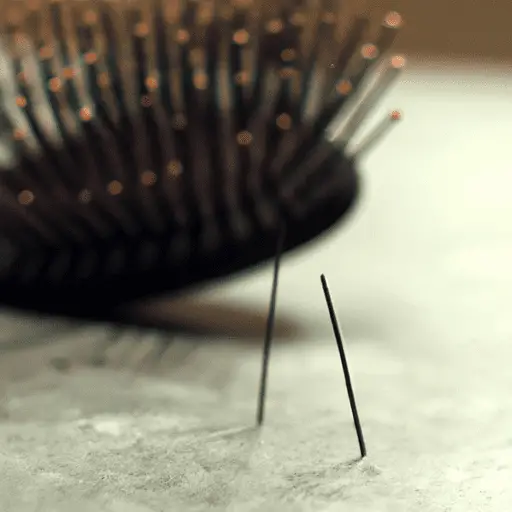Are You Experiencing Hair Loss?
-
Table of Contents
- Are You Experiencing Hair Loss?
- Key Takeaways
- Unraveling the Mystery of Hair Loss
- Understanding the Causes of Hair Loss
- Effective Treatments for Hair Loss
- FAQ Section
- 1. Can hair loss be a sign of a more serious condition?
- 2. Can hair loss be reversed?
- 3. Is hair loss more common in men or women?
- 4. Can certain hairstyles or treatments cause hair loss?
- 5. Can diet affect hair loss?
- Conclusion: Taking Control of Your Hair Health
- Key Takeaways Revisited
Are You Experiencing Hair Loss?

[youtubomatic_search]
Key Takeaways
- Hair loss is a common issue affecting both men and women, with various causes and treatments available.
- Genetics, hormonal changes, medical conditions, and certain medications can contribute to hair loss.
- Early detection and treatment can help manage hair loss effectively.
- Various treatments, including medication, surgery, laser therapy, and lifestyle changes, can help combat hair loss.
- Consulting a healthcare professional is crucial for accurate diagnosis and treatment.
Unraveling the Mystery of Hair Loss
Are you noticing more hair on your brush or pillow than usual? If so, you might be experiencing hair loss. Hair loss, also known as alopecia, is a common issue that affects millions of people worldwide. It can occur due to various reasons, ranging from genetics to lifestyle factors, and can significantly impact an individual’s self-esteem and quality of life.
Understanding the Causes of Hair Loss
Several factors can contribute to hair loss. These include:
- Genetics: Hereditary-pattern baldness is the most common cause of hair loss. This condition occurs gradually and in predictable patterns, such as receding hairline and bald spots in men, and thinning hair in women.
- Hormonal changes: Conditions such as pregnancy, childbirth, menopause, and thyroid problems can cause temporary or permanent hair loss.
- Medical conditions: Certain diseases, such as alopecia areata, scalp infections, and trichotillomania (hair-pulling disorder), can lead to hair loss.
- Medications: Hair loss can be a side effect of certain drugs used for cancer, arthritis, depression, heart problems, gout, and high blood pressure.
According to the American Academy of Dermatology, the average person loses 50 to 100 hairs a day. However, new hair typically replaces lost hair. But this doesn’t always happen, leading to noticeable hair loss.
Effective Treatments for Hair Loss
While hair loss can be distressing, various treatments can help manage the condition effectively. These include:
- Medications: Over-the-counter drugs like minoxidil (Rogaine) and prescription drugs like finasteride (Propecia) can slow hair loss and even cause some regrowth in some people.
- Surgery: Hair transplant surgeries, such as follicular unit transplantation (FUT) and follicular unit extraction (FUE), can help restore hair in balding areas.
- Laser therapy: Low-level laser therapy (LLLT) is a safe, effective treatment for hereditary hair loss. It can stimulate hair follicles, promoting growth and thickness.
- Lifestyle changes: A balanced diet, regular exercise, adequate sleep, and stress management can promote healthier hair and slow down hair loss.
FAQ Section
1. Can hair loss be a sign of a more serious condition?
While hair loss is often hereditary, it can sometimes indicate underlying health issues, such as thyroid disease, anemia, or autoimmune diseases. Therefore, it’s crucial to consult a healthcare professional if you’re experiencing significant hair loss.
2. Can hair loss be reversed?
In some cases, hair loss can be reversed, especially if it’s due to temporary factors like stress or medication. However, hereditary hair loss is more challenging to reverse and usually requires long-term treatment.
3. Is hair loss more common in men or women?
While hair loss is common in both sexes, it’s more prevalent in men. According to the American Hair Loss Association, two-thirds of men will experience some degree of hair loss by age 35.
4. Can certain hairstyles or treatments cause hair loss?
Yes, hairstyles that pull the hair tight, like cornrows or pigtails, can cause traction alopecia. Also, hot-oil hair treatments and permanents can cause inflammation of hair follicles, leading to hair loss.
5. Can diet affect hair loss?
Absolutely. A diet lacking in essential nutrients like iron, protein, and vitamins can lead to hair loss. Therefore, maintaining a balanced diet is crucial for hair health.
Conclusion: Taking Control of Your Hair Health
Hair loss can be a distressing experience, but understanding its causes and available treatments can help you take control of your hair health. Whether it’s due to genetics, hormonal changes, medical conditions, or certain medications, various effective treatments can help manage hair loss. Remember, early detection and treatment are key to combating hair loss. Therefore, if you’re experiencing significant hair loss, don’t hesitate to consult a healthcare professional.
Key Takeaways Revisited
- Hair loss is a common issue with various causes, including genetics, hormonal changes, medical conditions, and certain medications.
- Early detection and treatment are crucial for managing hair loss effectively.
- Various treatments, such as medication, surgery, laser therapy, and lifestyle changes, can help combat hair loss.
- Consulting a healthcare professional is essential for accurate diagnosis and treatment.
- Remember, you’re not alone in your hair loss journey, and there are numerous resources and treatments available to help you.
[youtubomatic_search]


